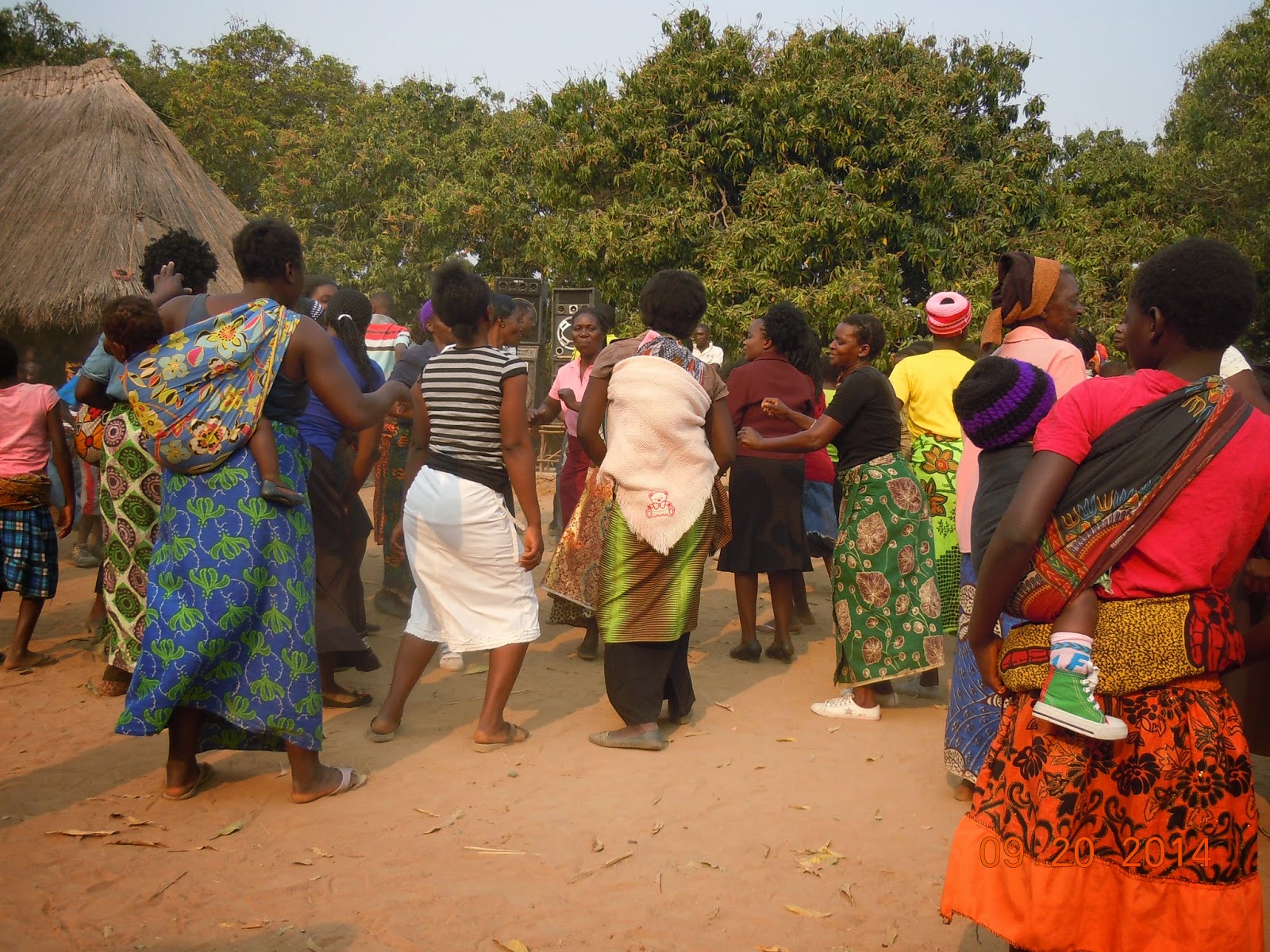On Saturday, I attended my second Zambian wedding. Although
the women who invited me (I have no idea how they were related to the bride or
groom) told me to arrive around noon, my host Mom and I showed up round 1600hrs,
just in time for all of the action (my Mom’s sense of Zamtime is perfect as we
never wait long for events to start, even if in my American mind I cringe at
being late and would have arrived at noon and waited 4 hours for things to kick
off).
As always, my host mom herded me to the very front of the
crowd (a position I hate as I’m typically forced into dancing or some other
type of amusement for the masses) where I was made to sit in the very front
with the bridal party. I didn’t even know who was getting married, only that it
was the brother of a friend of mine. My host Mom sat down beside me and we
waited for the wedding to begin as people danced and others snapped photos.
There is always much dancing at a Zambian wedding and everyone knows how to
shake that thang, even the 3 year olds!
Soon the crowds parted and the bridesmaids and groomsmen entered.
As in the US, they are paired up. Everyone does a synchronized dance which is a
shuffling and kicking type of thing. After dancing for a few minutes, they sit
down and are handed softies to drink. Even in 100°F
weather the men wear full suits. The guys also love to wear sunglasses, a very
popular accessory, it makes them look cool.
Next the bride and groom enter with their best man and
matron of honor (in the states this is the maid of honor. We also have a matron but she’s
typically married). The bride ducks her head and stares at her feet. She isn’t
allowed to smile or dance or do anything on her own. If her veil needs arranged
or her dress needs pulled up someone else does it. Anyway, they make their way
to a table and sit behind it. There is always a person sitting with them with a
pen and notebook to record the gifts and money that is given.
Now the real fun begins and my favorite part of any Zambian
wedding. It’s cake time! But, before the bride and groom can cut the cake (the
bride must have her matron cover her hand and guide it to cut the cake), the
knife girl must appear. KNIFE GIRL. That is her traditional name. Knife Girl is
usually a 7 or 8 year old girl given the knife to cut the cake. Everyone starts
cheering as she comes out and dances. Yep, she dances in front of the crowd
with a knife. At this wedding a boy accompanied her and they both danced. This
continues for about 10 minutes and onlookers can come up and give them tips.
Knife Girl then dances up to the table and presents the knife to the bride and
groom. The cake is brought out and the teeny-tiniest pieces ever are cut. The
bride and groom’s immediate family members then line up and are offered pieces
of cake by the kneeling bride and groom. The bridal party then is given a few
pieces that they pass out to lucky people in the crowd (I got a piece!).
That typically concludes the ceremony. After that everyone
eats food or dances or chats. Grass structures are constructed as food courts.
There’s a bucket of cibwantu, the traditional maize drink in Tongaland, and
then a bucket for washing your hands before and after eating. Once you enter,
one of the groom’s female family members brings you some nshima and meat. There’s
usually beef and chicken served at weddings. There are also hundreds of people.
Imagine cooking full meals for 500+ people. It’s crazy.
Weddings are huge celebrations in the village. They happen
after the maize harvest is sold since this is when families have the most money
and can afford a wedding. Everyone has fun, except for the bride who must
remain downcast. It’s said that if the bride doesn’t cry tears of sorrow at her
wedding she’s going to be an awful wife and possibly promiscuous. The party
rages throughout the night and people come and go as they wish. It’s a good
time to chat with people you might not see often.
Here are some pictures from the wedding.


